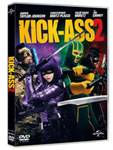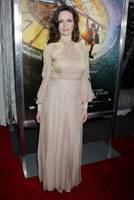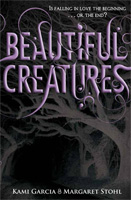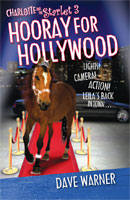Denzel Washington The Equalizer
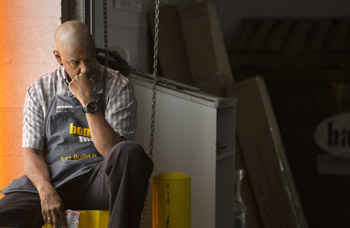
Denzel Washington The Equalizer
Cast: Denzel Washington, Marton Csokas, Chloë Grace Moretz, David Harbou, Bill Pullman, Melissa Leo
Director: Antoine Fuqua
Rated: MA15+
Running Time: 132 minutes
Synopsis: In The Equalizer, Denzel Washington plays McCall, a former black ops commando who has faked his death to live a quiet life in Boston. When he comes out of his self-imposed retirement to rescue a young girl, Teri (Chloë Grace Moretz), he finds himself face to face with ultra-violent Russian gangsters. As he serves vengeance against those who brutalize the helpless, McCall's desire for justice is reawakened. If someone has a problem, the odds are stacked against them, and they have nowhere else to turn, McCall will help. He is The Equalizer.
The Equalizer
Release Date: September 25th, 2014
About The Production
For Denzel Washington, the force that drives Robert McCall – the character he plays in the action-thriller The Equalizer – is an innate sense of justice. 'Robert McCall has done a lot of bad things in his past, and he's trying to get beyond that – he's not proud of his past, and he's trying to do better," Denzel Washington explains. After leaving that past behind to lead a quiet life, he finds that desire for justice reawakened when a young girl – abandoned by the rest of the world – needs his help. 'He didn't like himself – he never lost his skills, he made a conscious decision to put that behind him. It's when he meets an innocent young girl who is being abused, that he decides to do something about it."
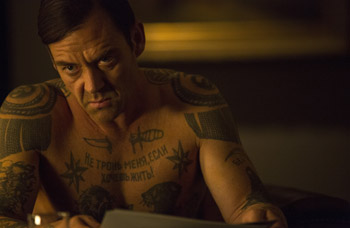 'Denzel Washington's motivation is simple," says Todd Black, a producer of the film. 'When there is an injustice to an ordinary person, someone who can't defend themselves, because they're not capable or they don't even know where to start, he will take care of it – violently or nonviolently."
'Denzel Washington's motivation is simple," says Todd Black, a producer of the film. 'When there is an injustice to an ordinary person, someone who can't defend themselves, because they're not capable or they don't even know where to start, he will take care of it – violently or nonviolently."
For director Antoine Fuqua – who re-teams with Denzel Washington after directing the actor to his Oscar®-winning performance in Training Day – Robert McCall shares some of the archetypical heroic traits that have been passed down. 'I saw this movie as a throwback, like the westerns that Sergio Leone made," he explains. 'There's an antihero, in a struggle, reluctant and ashamed to pick up his gun... but when he gets a chance to help other people, he does. He uses his skills for that."
'We'd all like to believe that there's a guy out there who could help us, if only we could find him," says producer Jason Blumenthal. 'If somehow we could reply to an ad on the Internet, desperately pleading for help when no one else would take that call. I'd like to believe that in my hour of need, somebody out there would listen to me – somebody would drop everything and help me, just because. And that's the Equalizer."
The film takes its title from the 1980s television series and shares its central premise – a man, highly trained, who can 'equalize" the odds when they are stacked against the helpless. Though the filmmakers took only the premise and title from the original show, Jason Blumenthal says that the premise is one that has only become more relevant. 'The word -equalizer' is a very strong, powerful word," he notes. 'A lot of people believe that there's a lot of imbalance in the world, so the idea of creating a balance – equalizing something – is very meaningful. If anything, I think that title means more now, in 2014, than it did in the 1980s. People can get behind this kind of hero: a man who does heroic acts for the people who need them the most."
With that in mind, the project was tailored especially for Denzel Washington by screenwriter Richard Wenk, who got the job once the producers saw his understanding of the character's sense of right and wrong. 'I would write an origin story – one that didn't exist in the television show," says Richard Wenk. 'I could keep Robert McCall a mystery, and that gave me the freedom to re-envision this character."
'Richard Wenk's script is like a stick of dynamite," says Antoine Fuqua. 'It's always interesting to watch the wick. It's sparkly and interesting – and you know that sooner or later, it's going to blow."
For Chloë Grace Moretz, who would join the cast as Teri – the young girl who McCall is inspired to help – it's easy to see that the role is perfect for Denzel Washington. 'He's so Denzel Washington in the way he does his job," she says, 'Robert McCall can be the most sweet, charming guy, with a huge smile on his face – and the next minute, he's a killer, and you're thinking, -WHOA! That happened quickly!'"
Antoine Fuqua says that one of the hallmarks of the character in Richard Wenk's screenplay is improvisation. 'Robert McCall doesn't carry a gun – that's a part of his past," says the director. 'He comes in and scans a room in two seconds. He'll know exactly what's to your left, what's to your right – and he'll use any of those things that he needs to stop you in your tracks. He takes what you have and uses it against you. He doesn't kill you from a distance – he's in your face and watching the light go out of your eyes. That's a different kind of human being. You'll never look at a corkscrew the same way again, I can promise you that!"
The idea for that corkscrew – one of the more memorable and grisly moments in one of the film's key fight sequences – came directly from Antoine Fuqua. 'I met with a friend of mine, who is familiar with this world," he explains. 'I told him that the fight was set in a bar area, and he laid out all of the different things in a bar, and said, -These are the things that would be useful to me.' He picked up the corkscrew and showed me what he had in mind."
Denzel Washington had sparked to the concept and set the ball rolling on the screenplay, but all agreed that there would be no commitment until the script was in. Three days after giving Denzel Washington the script, the producers were on pins and needles, waiting to hear back, when Black's phone rang. 'It's Denzel Washington on the other end," he remembers. '-Todd,' he says, -this is Robert McCall.'"
In his role as a producer, Denzel Washington worked with Richard Wenk to realise the role he wanted to play. He says they kept asking the basic questions – 'Who is he? What makes him tick? What are his flaws? What is he trying to get over? I think that long ago, he started out as a man who wanted to help people, and it turned into something else. He had to put that all behind him, to shut the door. And this young innocent opens that door again."
In seeking out a director, Denzel Washington was excited to be re-teaming with Antoine Fuqua. After their experience together on Training Day, Antoine Fuquasays, it was clear that The Equalizer lent itself to a good match of actor and director. 'Part of what I discovered in Training Day is that I can read something on the page that sounds like an action piece, and I know that Denzel Washington will see the acting in that – he can take an action beat and create great drama, as if it's a dialogue scene," says Antoine Fuqua. 'He's unpredictable, in the best way possible – he's in his world, and you're a fly on the wall, to capture it, if you can be smart enough to know when to continue in the scene."
Similarly, Denzel Washington felt great confidence in his director. 'He's very talented," says the actor. 'We sent him the material and he responded – we sat down and he had tons of ideas – and it was a done deal." Later, on set, that confidence paid off. 'Antoine Fuqua had the vision for the film – he was doing close work with specialised cameras, all of that stuff. But I never worried about any of that. The camera is Antoine's area of expertise – I don't have to worry about that. I just worry about the acting," he smiles.
'We had a rhythm and an understanding," says Antoine Fuqua. 'There were times when we didn't need to talk; we both knew where each other was going."
Since Training Day, Antoine Fuqua and Denzel Washington have had several opportunities to re-team, but The Equalizer is the first that actually brought them back together. 'We didn't force it," says Jasn Blumenthal. 'It wasn't -Let's get the guys that did Training Day together.' That's not a reason to make a movie. I think Antoine Fuqua was looking to make a movie where he could get back into character and really understand what makes a person tick. You can only build a great character if you've got an unbelievable actor, and of course, we had Denzel Washington. So the challenge then became finding a character that Denzel Washington could sink into and a world that Antoine Fuqua could bring to life."
About The Supporting Cast
Chloë Grace Moretz leads the supporting cast as Teri, a young girl who has been forced into a life of intimidation and terror. After meeting with Robert McCall, her story will reawaken in him a desire for justice.
'When I first heard that the character is a prostitute I thought that it would be a Taxi Driver type of role – pushing the boundaries a bit," she says. 'But I was surprised. The role doesn't glorify prostitution nor make it cotton-candy. You never see her in the actual act of prostitution. The focus isn't on her profession but who she is as a person. You see that there is still a spark in her eye and that she yearns for something greater and if she can get out of this scary world, she could go on to a normal life. That's what I loved about the character – this inner hope that was built into her story."
Chloë Grace Moretz says that inner hope is the basis of the bond that Teri forms with McCall. 'He sees this dream in her," she says. 'It's like there are two panes of glass – you have this terrified little girl, and right in front of it, a girl who's been thrust into a terrifying world, putting on the face of a total badass to survive."
Denzel Washington says that Teri, too, has a gift for looking beyond that first pane of glass. 'She's in the business of reading men – whether it's a natural gift or she's developed it through her profession," Denzel Washington says. 'Not to say she sees right through him, but she can see the pain, she can see the hurt."
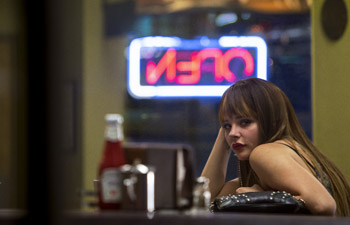 Once she had the role, Chloë Grace Moretz researched the character's background. 'There are girls who have been brought into rings from all over – from Russia, from Scandinavia," she says. 'I went to an amazing organisation called Children of the Night – girls from all over America call a hotline number and they're off the streets and in a home that cares for them. I didn't want to exploit these girls – I'm an actor portraying a role – but as a girl, I wanted to understand. Meeting those girls not only helped me to be Teri truthfully and show who she is, but it allowed me, as a 16-year-old girl, to feel grateful and to put a spotlight on the organisation."
Once she had the role, Chloë Grace Moretz researched the character's background. 'There are girls who have been brought into rings from all over – from Russia, from Scandinavia," she says. 'I went to an amazing organisation called Children of the Night – girls from all over America call a hotline number and they're off the streets and in a home that cares for them. I didn't want to exploit these girls – I'm an actor portraying a role – but as a girl, I wanted to understand. Meeting those girls not only helped me to be Teri truthfully and show who she is, but it allowed me, as a 16-year-old girl, to feel grateful and to put a spotlight on the organisation." But for Robert McCall, it's not just about saving Teri – his actions will lead him into the heart of the Russian mafia. Actor Marton Csokas took on the role of Teddy, the gangster overseeing the ring. 'I liked the challenge of playing the villain," he says. 'I've played villains before – even a Russian villain – and you don't want to repeat yourself. So if I could find ways to come at it from left field, a little more obscurely, and work that into the raw material, then we would come up with something intriguing. It was fun."
Marton Csokas says that Wenk gave the character 'really strong anchor points and information that allows you to leap into all kinds of different directions. The strongest idea that I tried to maintain is the sociopathic aspect – no conscience, the absence of love, glib in feeling, not really caring what other people think from a moral perspective. These ideas are good to be able to thread into the character." This is what sets Teddy in opposition to Robert McCall – where Teddy is incapable of caring about other people, Robert McCall cares so much that he is drawn back into a life that he had sworn he had left behind.
To adopt Teddy's unique accent, Marton Csokas again looked internal. 'I didn't want to give him a stereotypical Russian accent," he explains. 'People from Russia who learn English all speak very differently. So I imagined he had spent time in England – more than likely London – and I experimented with the Cockney accent. Remember, he's a sociopath, so he can be anything to anybody, and sociopaths are notoriously good mimics."
Actor David Harbour plays Frank Masters, a corrupt cop with the Boston police. 'He's working with the Russian mob, the Irish mob, other mobs. He gets a lot of money from them," says David Harbour. When Robert McCall begins his takedown of the people harming Teri, Masters becomes the minder for Teddy – the man brought in to protect the mob's assets at any cost. 'Masters becomes not only a foil for Robert McCall, but a foil for Teddy, because Masters has a very different idea about how to approach getting someone. He knows Boston very well – it's his home – and he has an antagonistic relationship with this person coming in and trying to tell him what to do."
Bill Pullman and Melissa Leo take on the roles of Brian Plummer and Susan Plummer, a married couple from Robert McCall's past. 'They're the only functioning male-female relationship in Robert McCall's life," Bill Pullman notes. On creating that relationship with Melissa Leo, he says, 'It's a pleasure to create a relationship of 20-plus years – you get a chance to be in an open, generous frame of mind."
Brian Plummer, he says, 'is an old-money type. Richard Wenk had met one of these fellows in the South of France – one of these erudite, old-money people who are constantly being employed by the government for their amazing acumen about specific areas of knowledge of foreign relations." In Brian Pullman's imagination, it's in that role that Plummer met his wife – though her role was decidedly out of the think tank offices and on the front lines.
Melissa Leo, who won the Oscar® for her role in The Fighter, says that like Robert McCall, they are supposed to have retired. 'Brian and Susan Plummer have retreated from that world," she says. 'And we suddenly get brought back into play, once Robert McCall comes to our door."
Melissa Leo says that the relationship between Susan Plummer and McCall goes so deep that often, nothing needs to be said. 'In their world, nothing is ever casual. There are always things not being said, and they've both been trained and have worked for many years to be able to read signals from people, to literally read their thoughts from their behaviors. So when Robert McCall shows up, he'd like to think that she doesn't know what's going on with him, but she must have a pretty good idea that she's in some pretty big trouble."
What, exactly, was their relationship, in Robert McCall's former life? 'It's not explained, what their history is together," she says. 'It's left to the imagination. But in the imagination, the question isn't -What did they do together,' but -What didn't they do together?'"
Of her on-screen husband, Bill Pullman, Melissa Leo remembers, 'Bill Pullman was kind enough to give me a call in my hotel room after we both arrived," Melissa Leo remembers. 'We walked around the park, had a cup of coffee together – we didn't really talk about the script or the characters, just got to know one another a little bit. From that conversation, I got a sense of him, his experience, how stage was his beginning, and I put that into the pot of how Susan might feel about Brian Pullman."
Strangely enough, years ago, Melissa Leo played a supporting role in an episode of 'The Equalizer" television series. Memory is fleeting, but YouTube is forever.
About The Production
To realise the action of The Equalizer, the conversations began between Antoine Fuqua, Denzel Washington, and Keith Woulard, one of the film's stunt coordinators. 'There's a tendency in shooting action to shake the camera and move things around – the audience can't tell what's happening," says Antoine Fuqua. That's just what they didn't want to do. 'My goal was to take acting and make it action," says Antoine Fuqua.
Antoine Fuqua's inspiration for the way he would shoot the action scenes with Robert McCall was inspired by his interaction with real-life boxers. 'I happen to have a very good friend who's a great boxer – Sugar Ray Leonard," he notes. 'He'll tell stories, and you'll realize how smart a boxer can be. Sometimes they'll touch you – hey, how you doin' today? – and that's their way of checking you out, seeing if you're in shape, if they think you're a threat. Or they're watching you a certain way, to see how you move, how your body language is, what your strengths and weaknesses are. They can pick you apart. Robert McCall is trained that way, too – he notices these things and uses them to his advantage. We had to show that."
The next step was to slow it down. 'When we first did the scene in the bar office, it was quick – really fast. I said, -It should be fast, but it should be personal. Let's slow it down, let's look at it like it was a scene of dialogue, so I can still see him as a character within all of this movement. How would that be done, where it's Denzel Washington doing what he does?"
It was also important to Antoine Fuqua that the scenes be realistic. 'We asked ourselves, Can it really happen? Can you really physically do these things? What happens to a human being who is capable of doing that? And it turns out for most people, ordinary people, it's not possible – you get into a car accident, your heart beats faster, you panic. For people like Robert McCall, though, it's just the opposite. Their heart rate slows down. The breathing slows down. Everything around them slows down. Their pupils open up to let in more light. It's all really happening as they assess a room in seconds. And then, when they have it all figured out, they go into action."
For Keith Woulard, as a stunt coordinator, the process began by breaking down the script into its individual set pieces. 'We talked to Denzel Washington and Antoine Fuqua about what they wanted to do," he says. 'In this particular case, Denzel Washington didn't want to do a lot of martial arts-type of fighting – he wanted straight, street, slick, creative fighting. And Antoine Fuqua, of course, agreed." Keith Woulard brought his own experience in the military, including Special Forces, in creating the fights for the film.
For this particular film, it was imperative that the stunt team work closely with Washington and create action that the actor could perform himself. 'We set up all of the action facing us. You see Denzel Washington maybe 95% of the time," Keith Woulard notes. 'So, about a month before we started shooting, I started training him – and we trained every day."
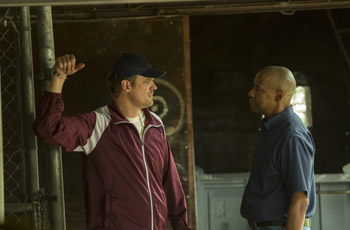 Training was imperative, as the character is highly trained and an expert. 'If you're holding a knife in a knife fight with the blade sticking out, anybody who knows their stuff will say, -OK, you're going to get the drop on this guy really quick,'" Keith Woulard says. 'But if that knife is turned and the blade is running down the palm of his hand, and his holding it like he's boxing, well, that's a guy who's got some experience."
Training was imperative, as the character is highly trained and an expert. 'If you're holding a knife in a knife fight with the blade sticking out, anybody who knows their stuff will say, -OK, you're going to get the drop on this guy really quick,'" Keith Woulard says. 'But if that knife is turned and the blade is running down the palm of his hand, and his holding it like he's boxing, well, that's a guy who's got some experience." One thing that sets Robert McCall apart is that he does not use a gun – he uses his environment, whatever is at hand, against his opponents. 'There could be an ashtray on the table, a letter opener on the desk," Keith Woulard continues. 'There could be a vase, a fork, a cup, a book. And when he's fighting in Home Mart, he's on his home turf – he can gather things up and combine them."
In that way, the specific action of The Equalizer doesn't end with the stunts – it cuts across all aspects of filmmaking, including photography and production design. 'Antoine Fuqua was the one to come up with the idea of Equalizer-vision, if you will," says producer Todd Black. 'It was completely Antoine Fuqua's idea from the beginning, from the first meeting. We brought him back together with Mauro Fiore, the director of photography, who he'd worked with on Training Day and won the Academy Award® for Avatar, and Naomi Shohan, his production designer on Training Day, and the three of them worked out this idea."
'When we hired Naomi Shohan for this movie, she said, -It must reek of realism. You must feel like Robert McCall could live right next door. When you walk into Home Mart, it must feel like that kind of store,'" Black continues. 'But she also said, -Even though it's real, it doesn't have to be gritty or dirty – it has to have a soul, it's got to have candlelight, it's got to have warmth. Robert McCall has to have a warm soul, or he wouldn't be The Equalizer.'" Naomi Shohan says that a large part of her challenge on the film was creating sets that would carefully set up everything that Robert McCall would need for the action sequences – without giving the game away – and then paying off that setup in the action sequences. 'Set decorator Leslie Rollins and his team studied very carefully – we talked about what would be interesting for the fight scenes, and knowing that we needed to introduce those in the beginning and reuse them later for the fight."
Naomi Shohan also created the diner set where Teri and Robert McCall make their connection. 'The idea was for the diner to have wrap-around windows, to become a bowl of light in the darkness," she explains. 'It was so hard to find that – we looked all over the place. And then we saw just what we were looking for – these amazing windows – but it was a floor store. So we asked if we could borrow it, and if it could be a diner for a while. We took everything out, we made a counter, we changed the floor, we put in a fake tin ceiling. We hung the lights, and we painted it a color that we hoped would seem a little murky and underwater, but also glow. We used the palette from the famous Hopper painting, which has a similar wall color and a feeling of green, and a red counter. It's not a novel idea, but it worked well – it looked like it was stuck in time, a place that hadn't changed since the 1940s."
The Equalizer
Release Date: September 25th, 2014
Have You Seen This?
MORE


